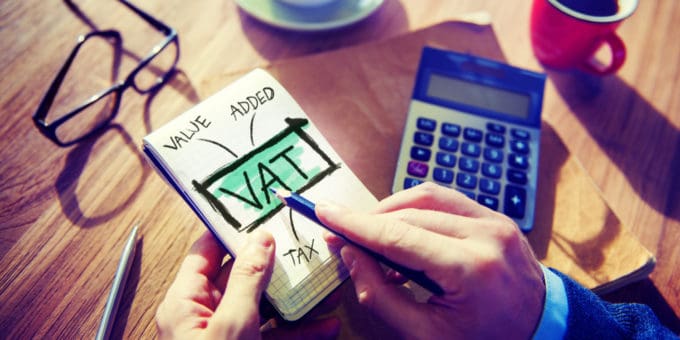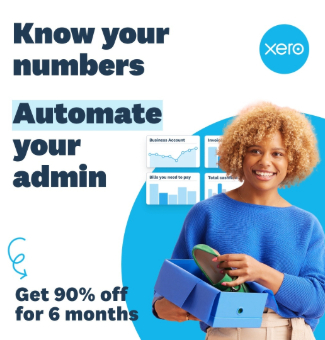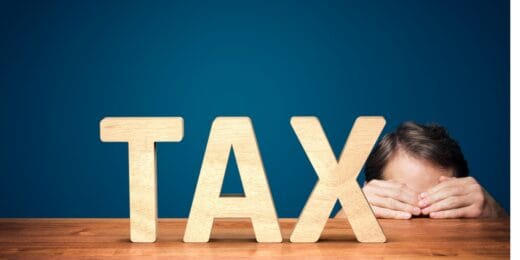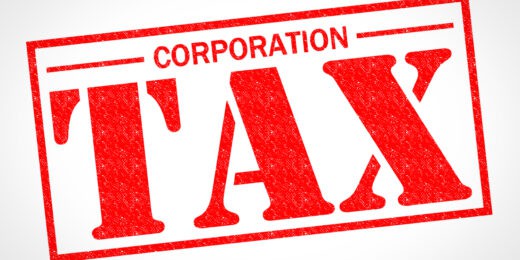UK VAT registration, whether compulsory or voluntary, can provide a range of benefits to businesses of all sizes. However, there are many obligations and drawbacks to be aware of. Below, we outline the criteria for compulsory VAT registration and discuss the pros and cons of registering a business for Value Added Tax.
Key Takeaways
- Registering for VAT allows businesses to reclaim input tax on purchases, enhancing cash flow management.
- Voluntary VAT registration can enhance your business’s credibility and attract larger clients.
- Businesses must maintain accurate records and submit VAT returns, increasing administrative responsibilities.
When is VAT registration compulsory?
VAT registration in the UK is compulsory for all types of businesses, including limited companies and sole traders, when any of the following criteria are met:
- VAT-taxable turnover is more than £90,000 (the VAT registration threshold) within a 12-month period
- VAT-taxable turnover is expected to exceed the £90,000 VAT threshold within the next 30 days
- the business buys more than £90,000-worth of goods from EU VAT-registered suppliers
- the business is outside the UK but supplies goods or services to the UK
Voluntary VAT registration is also available when there is no legal requirement to register. This is worth considering because it offers significant financial and professional benefits to new and small businesses.
Please note: ‘Taxable turnover’ is the amount of money your business makes from selling products and services. This differs from ‘taxable profit’, which is the surplus income that’s left after you’ve deducted business costs and expenses from overall income.
If your business is based in the EU and you distance sell goods that are located in an EU member state to non-VAT registered customers in the UK or Isle of Man, you must register for VAT when:
- the value of these distance sales exceeds £70,000 in a calendar year, or
- you distance sell excise goods (e.g. alcohol and tobacco) of any value into the UK
Non-VAT registered customers include:
- private individuals
- certain small businesses
- businesses that are unable to register for VAT because their activities are exempt
- public bodies
- charities
Please note that distance selling only applies to goods rather than services.
Sales made to VAT-registered customers do not count as distance sales. Furthermore, if your business is outside the EU, any sales of goods from within a non-EU member state to customers in the UK are not classed as distance sales.
There are also different VAT rules and responsibilities for businesses selling goods in the UK using online marketplaces.
Pros and cons of VAT registration
Becoming VAT registered has a number of benefits but there are also certain drawbacks to bear in mind. Whether you’re legally required to register for VAT or choose to register voluntarily, it’s worthwhile familiarising yourself with the pros and cons. This ensures you are fully informed and know what to expect.
Pros of VAT registration
- You can charge VAT on the goods and services you sell. This is known as ‘output tax’.
- You can reclaim VAT you’ve paid on goods and services bought from other businesses. This is known as ‘input tax’.
- Your business will be eligible for VAT refunds if you sell zero-rated products or services and purchase standard-rated products or services.
- Voluntary VAT registration can make your company appear larger and more established. This can give you a competitive advantage, especially if you’re dealing with other VAT-registered businesses and clients.
- Displaying a VAT number on stationery and websites may encourage larger firms to consider doing business with your company. Many big firms, particularly those in the finance sector, refuse to work with non-VAT registered businesses.
- You can produce VAT invoices to your clients/customers.
- When you register for VAT, you can make claims for legitimate goods purchases for up to 4 years before registration and services up to 6 months. If you’re registering for Voluntary VAT registration means that you can backdate your registration and reclaim VAT on legitimate business purchases by up to 4 years (for goods) or 6 months (for services).
Cons of VAT registration
Charging VAT on certain products and services may deter potential clients and existing customers who are not VAT registered because they won’t be able to reclaim the VAT.- If output tax exceeds input tax, you will need to pay the difference to HMRC.
- VAT registration is accompanied by extra administration and paperwork. You will have to maintain accurate VAT accounting records and submit quarterly VAT returns to HMRC.
To determine whether voluntary UK VAT registration is right for your business, it’s important to weigh up the pros and cons in relation to the goods and services you buy and sell, who and where your customers are, and the type of industry in which you operating.
More often than not, the potential benefits far surpass the burden of additional administration and filing. However, it may be worth speaking to an accountant for professional, tailored advice before making a decision.
How do I reclaim VAT?
VAT can usually be reclaimed on any goods and services that are bought for business use, even on purchases made before the date of VAT registration.
However, VAT on any goods and services purchased for both personal and business use can only be reclaimed proportionately. This may include things like telephone line rental, phone calls and internet costs, computers and laptops, and utility bills in a private residence that is also used for business purposes.
It is important to keep records and valid VAT invoices to support your claims. You will also have to show how you reached the figures for the VAT you are reclaiming.
It is not possible to reclaim VAT on:
- Anything that is purchased exclusively for private use
- Business entertainment costs
- Goods and services used to make VAT-exempt supplies
- Products purchased from other EU countries
- Receiving business assets that are transferred as a going concern
- Anything purchased under a VAT second-hand margin scheme
How do I cancel my VAT registration?
You must cancel your VAT registration if your business is no longer eligible to be registered. For example, if you cease trading, stop making VAT-taxable supplies, or join a VAT group. You also have the option to cancel your VAT registration at any time if your VAT-taxable turnover falls below £88,000 the VAT de-registration threshold) or you no longer wish to continue with voluntary registration for any reason.
To cancel VAT registration, you must contact HMRC online or by post (using form VAT7) within 30 days of the date your business stops being eligible. You’ll need to state the reason for de-registration and the date from which your VAT registration should stop. Until this date, you must continue to charge and account for VAT.
Within approximately 3 weeks of submitting the application, HMRC will contact you to confirm the official date of de-registration. You’ll then be required to submit a final VAT return. You must also keep all VAT records for 6 years from the de-registration date.
Optional VAT Flat Rate Scheme
Normally, the VAT that businesses pay or reclaim is based on the difference between the VAT charged on sales (output tax) and the VAT paid on purchases (input tax).
The VAT Flat Rate Scheme was introduced to reduce the administrative burden on small businesses by allowing them to pay HMRC a fixed rate of VAT instead. This means that you can keep the monetary difference between output and input tax, but you can only reclaim VAT on purchases of capital assets over £2,000.
To be eligible to join this HMRC scheme, your business must be VAT-registered and have an annual VAT-taxable turnover of less than £150,000 (excl. VAT). You can join the Flat Rate Scheme online when you register your company for VAT.
We can help you register for VAT online
Have you decided that becoming VAT registered is the right path for you and your business? With our VAT Registration Service (£39.99) we’ll take care of your UK VAT registration for you. Here’s what’s included:
- The completion and sending of your VAT registration application to HMRC by a VAT application expert (regardless of whether you exceed the VAT registration threshold or not)
- A UK VAT registration expert to assist with any questions that you may have regarding your application
- Email confirmation of your VAT Registration Number
- Certificate of VAT Registration (supplied by HMRC)
- Thorough instructions on creating your own HMRC Government Gateway account (required to activate your VAT registration online)
Take a look at the link above for more information. Alternatively, contact the Rapid Formations team if you have any questions about this service.
Thanks for reading
We hope this blog post has been helpful. If you still have any questions about the pros and cons of VAT registration or anything else related to becoming VAT registered, please leave a comment and we’ll be in touch shortly.
Please note that the information provided in this article is for general informational purposes only and does not constitute legal, tax, or professional advice. While our aim is that the content is accurate and up to date, it should not be relied upon as a substitute for tailored advice from qualified professionals. We strongly recommend that you seek independent legal and tax advice specific to your circumstances before acting on any information contained in this article. We accept no responsibility or liability for any loss or damage that may result from your reliance on the information provided in this article. Use of the information contained in this article is entirely at your own risk.










Join The Discussion
Comments (24)
Thanks for the article! Having these VAT registration pros and cons laid out like this for me will be useful for my own expert financial advice UK business.
We’re so glad you took the time to leave a comment.
Hearing from our readers is always appreciated.
Kind regards,
The Rapid Formations Team
Hello,
Can a dormant company register for VAT?
with best regards
Sonny
Thank you for your kind enquiry, Sonny.
I can confirm that a dormant company cannot register for VAT.
I trust this information is of use to you.
Kind regards,
Rachel
Hello, and thank you for this enlighting post.
I am a non-UK resident and want to setup a limited company in the UK.
It is a web-based company and my webservers (hosting) are in Germany, so my question is: Can I reclaim the VAT that I pay in Germany for my company server?
Thank you for your time.
Ian M.
Dear Ian,
We are not accountants so cannot advise on the application of Vat in specific situations. We would advise contacting an accountant for advice specific to your requirements.
Best regards,
Rapid Formations Team
Hi good people can anyone enlighten me with the costs and benefits of vat system on local businesses? thanks
Dear Tschekiso,
Thank you for your kind enquiry.
The main benefits of VAT Registration are:
1. Your company will look bigger and more professional than it would if you could not produce VAT invoices – which could increase trust with suppliers, business partners and customers
2. You can claim back VAT you pay for business purposes
3. You may legally be obliged to register for VAT if your annual turnover is or is expected to be over £85,000 in a rolling 12 month period.
I trust this information is of use to you.
Regards, Rachel
I am a sole trader. Can I claim the vat back for materials I buy in for the work I do. Automative Trimmer. My over all costs for the work I do is 2/3rds materials. I am under the 83k threshold. if so how far back can I claim. I have been trading 7 years .
Dear Steve,
Unfortunately we are not accountants so cannot advise on the treatment of your vat costs. I would suggest you contact an accountant about this.
Best regards,
Rapid Formations Team
If I choose to register for VAT before my company passes the £83k threshold, I understand that 1. I am obliged to charge VAT on products sold to consumers from the date of registration, but 2. I can clim back VAT on purchases made upto 4 years ago (as long as the purchases are still in hand). Is that correct?
Dear JC,
Thanks for your message.
You are correct in your interpretation of charging vat on products sold, but for purchases there are rules which detail a little more the criteria for claiming vat on purchases – please see link attached for information.
https://www.gov.uk/vat-registration/purchases-made-before-registration
Kind Regards
I wish to start a charter boat company, and purchase a boat listed at £150,000 Excl VAT. Do I need to pay the VAT as it is for commercial use? Do I pay at time of purchase and claim it back?
Dear Christian,
Thank you for your message.
Unfortunately we are not able to advise on VAT matters such as this, so I would suggest you seek professional advice regarding the treatment of the vat on the boat.
Best regards,
Rapid Formations Team
Can you help please
If my business goes to 83 thousand pounds do I have to pay VAT for that 83 thousand pounds even though I have not charged my customers VAT
Is that something I would have to find from my business
Thank you
Dear Liz,
Thank you for your message. You only have to charge vat from the date you register for vat. The date of registration should at least be from the date where you break the £83,000 threshold (in the previous 12 month period) so you would not be liable for vat on sales prior to the date of registration.
Best regards,
Rapid Formations team
Just reading all this. So if you are not VAT registered you cannot claim vat back at all. So what happens when a utility company does say £3000 of work on your farm and charges VAT. Surely you can say we are not VAT reg. so they should quote the bill without VAT?? I work for a chemical company and a few people whom have bought from us say that they are not VAT registered. We then have to figure out how to set the VAT rate at zero? is this right? Can you explain all this to me in layman terms please
Hi Anthony,
If your business is not VAT registered, you cannot charge or show VAT on your invoices, nor can you reclaim VAT on any purchases made. VAT-registered businesses charge VAT regardless of whether or not the customer is VAT registered. Consumers pay VAT on most purchases, but it’s normally included in the display price so we don’t tend to notice that we’re paying it.
Regarding the chemical company – if it is VAT registered, the customer still has to pay VAT, even if they themselves are not registered for VAT. You do not omit this tax.
I hope this helps. If you’re still unsure, I would recommend speaking to an accountant to determine if it’s swarth registering your business for VAT.
Best wishes,
Rachel Craig
Hello Rachel,
Can you please explain the responsibilities for non VAT registered businesses?
I have found lots of info regarding being VAT registered, but no info on how to operate as a non VAT registered business.
For example as a non VAT registered business do I still need to pay VAT to HMRC?
On my receipts to customers should i show VAT or not?
Thanks in advance for your reply.
Marc
Hi Marc,
If you are not VAT registered, you cannot charge for VAT or display it anywhere, and there is no need to pay VAT to HMRC because you are not receiving any from your customers.
The only time you may encounter VAT is when you are actually buying something – the businesses you are purchasing goods or services from may charge VAT. However, you will not be able to reclaim this VAT if you are not VAT registered.
I hope this makes things a bit clearer – VAT is very confusing!
Best wishes,
Rachel
Dear Rachel,
what about receiving goods in the UK from the EU worth LESS than £83,000 per year?
Companies from other European countries say that they need my VAT registration number, to claim reverse charge.
Or is there another number I can give them for this, like my UTR?
Best,
Marcus
Hi Marcus,
Your UTR will not be useful to them – this is a confidential number and should only be disclosed to HMRC and Companies House.
If you are not VAT registered and receive goods from other countries in the EU, your supplier will charge VAT at the local rate in the EU country from which the goods are supplied. However, if you do register for VAT, your supplier will not add it to your invoice because they can reclaim it. You can read more about his here: https://www.gov.uk/guidance/vat-imports-acquisitions-and-purchases-from-abroad
I would advice speaking to HMRC or an accountant if you are unsure what to do next.
Best wishes,
Rachel
IF HMRC rejects the application, where are these additional documents required to be submitted? The response simply states that the requisite information needs to be provided to HMRC but where this information is to be submitted is not known.
Can let me know at what address of HMRC do we need to submit these additional documents?
Gaurav Sehgal
Hi Gaurav,
If a VAT Registration has been processed online you can upload the information in PDF format to your application. The system will ask for it specifically.
If you made the application in paper format, you would need to post the ID to the following address:
HMRC
Vat Registration Team
Crown House
Birch Street
Wolverhampton
WV1 4JX